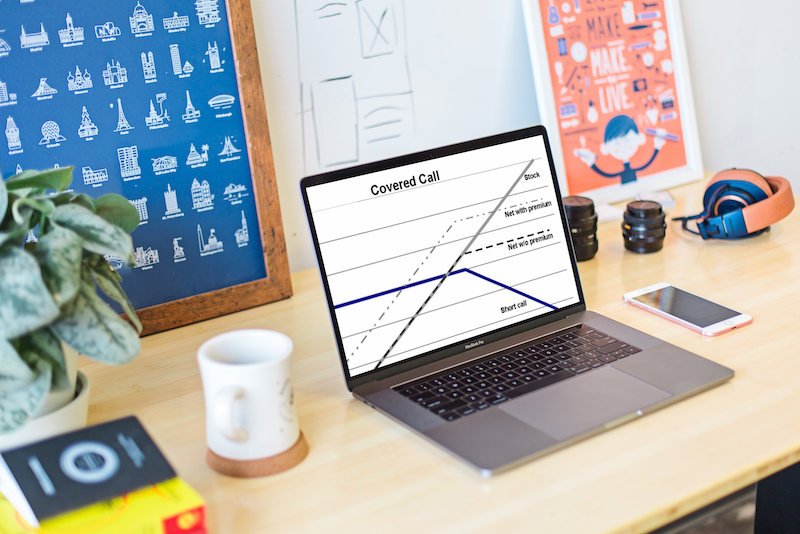Playbook #011: Options Trading - Covered Calls

🖼️ The Big Picture
Like it or hate it, Robinhood has changed the game of stock investing, making it more accessible for everyone to buy stocks with the tap of a button on their mobile phones.
As much fun as it is to watch your stocks climb (and hopefully not drop), what if you could both guarantee an upside while limiting your downside in the short term?
Covered Calls are a simple, conservative strategy that professional stock traders use all the time to create cash flow from existing stocks they own and boost profits. It's a strategy you can use too, with a relatively short learning curve.
Options can be a bit complicated if you haven’t traded before, so let’s go over a few simple definitions and an example so you can see how this strategy works.
- Call option: A contract that gives the buyer the right (not obligation) to buy 100 shares of a specific stock...
- At a predetermined price (strike price).
- On or before an expiration date.
- Meaning: If you own 100 stocks, you can monetize them further by selling 1 “call option contract” on them with little risk.
- Covered: The seller owns at least the amount of stock specified in the “call option” contract (100 shares per contract).
- Meaning: You’ve got the shares. You don’t have to go buy them later off the market in order to satisfy the contract if the stock price exceeds the option strike price at expiration. If you sell more call options than you’ve got the shares to cover, then you’re “naked.”
- Covered Call: Selling “call options” on stock you already own.
Confused? Here's an example to help show how it works:
A (fictional) Covered Call Example:
- You own 100 shares of InGen, trading at $100 (value: $10,000)
- You don’t think the price will rise much further in the next 90 days because Jurassic Park is delaying its newest exhibit, and want to boost your income with a conservative strategy
- So, you decide to sell 1 call option to Ian Malcolm, giving him the right to buy your 100 shares at $110 per share anytime in the next 90 days. You charge him $4 per share.
- Ian pays a $400 option premium ($4 per share x 100 shares per contract) for the right to buy your shares for $11,000. If he exercises his option and buys them, he’s all in for $11,400 (or $114 per share)
- You keep the $400 option premium whether he exercises it or not.
- If, in the next 90 days…
- Stock price rises above $110, Ian may exercise his option to buy your 100 shares for $110 each (plus you keep the $400 he already paid you).
- Stock price stays below $110 or falls, Ian won’t exercise his option. He’ll most likely “close out” his option or let it expire, which means you keep the option premium and your stocks.
🔢 By The Numbers
You don't have access to this CAPITALIZE issue at the moment, but if you upgrade your account you'll be able to see the whole thing, as well as all the other posts in the archive! Subscribing will give you immediate access.
This CAPITALIZE issue is for members only
Join nowWhat is CAPITALIZE?
CAPITALIZE is a tool for discovering new ways to grow your wealth. You get a new investment idea each week in a simple 7-Minute report. Quickly check to see if it matches your "Investor DNA" and fast-track your way to being a top 1% investor... with less risk. Created by Wealth Factory for people who want to build their wealth and keep it.
